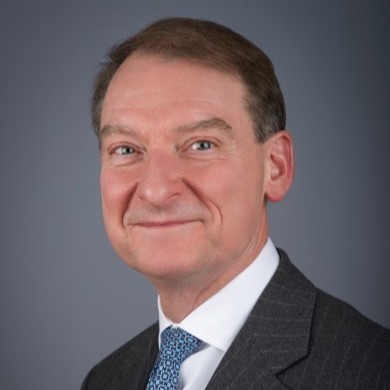
Securities and Exchange Commission Chairman Gary Gensler’s fast and furious rulemaking era will soon be ending, and it is a good time to take stock of what the SEC’s initiatives may look like with President-elect Donald Trump’s nominee, Paul Atkins, at the helm. Atkins is CEO of Patomak Global Partners, a fintech and risk management consulting firm he founded in 2009 that advises banks, public companies, and digital asset firms and which counts cryptocurrency exchanges, decentralized finance (DeFi) platforms, and blockchain and digital token endeavors among its clients. Atkins’ knowledge of the digital asset space complements President-elect Trump’s focus on creating a friendlier environment for companies looking to break through Gensler’s crypto regulatory stalemate. In addition, through Patomak’s experience helping companies navigate litigation and enforcement matters, Atkins likely has developed a view regarding which SEC enforcement priorities he would like to abandon and which he would potentially focus on.
 Prior to founding Patomak Global Partners, Atkins served as an SEC commissioner from 2002 to 2008 under President George W. Bush, and prior to that, from 1990 to 1994 under both Republican and Democratic administrations led by Presidents George H. W. Bush and Bill Clinton. If Atkins’ nomination as the next SEC chair is confirmed, he is expected to take a much more market-friendly approach than the current SEC and look to potentially unwind many Gensler-era regulations. He is in tandem with Trump’s support of deregulation and is likely to view a less intrusive role with respect to rulemaking as the best means to attain market efficiency. As a result, registered fund directors and other industry participants are eager to gain a sense of what the new regulatory priorities will be so they can appropriately shift their focus and oversight. Highlights of a few expected regulatory shifts are detailed below.
Prior to founding Patomak Global Partners, Atkins served as an SEC commissioner from 2002 to 2008 under President George W. Bush, and prior to that, from 1990 to 1994 under both Republican and Democratic administrations led by Presidents George H. W. Bush and Bill Clinton. If Atkins’ nomination as the next SEC chair is confirmed, he is expected to take a much more market-friendly approach than the current SEC and look to potentially unwind many Gensler-era regulations. He is in tandem with Trump’s support of deregulation and is likely to view a less intrusive role with respect to rulemaking as the best means to attain market efficiency. As a result, registered fund directors and other industry participants are eager to gain a sense of what the new regulatory priorities will be so they can appropriately shift their focus and oversight. Highlights of a few expected regulatory shifts are detailed below.
Enforcement Approach
Atkins is likely to encourage capital markets innovation and formation in the same manner that he pursued when he was previously at the SEC. In addition, Atkins is expected to ease up on harsh enforcement initiatives in favor of a more uniform enforcement protocol that focuses on investor protection, lawful disclosure, and lower fines and penalties, as well as providing an avenue for self-reporting. The industry is less likely to see “regulation-by-enforcement” and more likely to see enforcement actions based on existing fraud and market manipulation legal frameworks.
Digital Assets
Atkins has extensive experience in the digital asset space, and he is likely to champion a framework that is supportive of the administration’s efforts to make the United States a global leader in cryptocurrency. To this end, he is likely to take a principles-based approach that is easier for firms to follow and less aggressive. His agenda may include halting enforcement actions and providing guidance as to whether digital assets constitute securities.
Currently, the SEC’s jurisdiction in the digital assets/crypto space is muddled, and Atkins is likely to defer to Congressional legislative actions with respect to digital assets regulation and artificial intelligence regulation. One such pending legislative initiative is the Financial Innovation and Technology for the 21st Century Act (FIT21), which would, among other objectives, create a regulatory framework that clearly establishes the SEC and Commodity Futures Trading Commission’s jurisdictions with respect to digital assets. It would also impose new technological and operational requirements for digital asset exchanges, brokers, and providers. The measure passed the House with bipartisan support in May 2024 and may be ripe for consideration by a Republican Senate and Republican House in the 119th Congress.
Another potential game changer in the digital assets arena is President-elect Trump’s Dec. 5 appointment of David Sacks as his crypto and AI “czar.” This role, while ultimately an advisory one, reinforces the importance the Trump Administration is expected to place on simplifying the regulatory framework for digital assets. Sacks is a former COO of PayPal and understands the intersection of blockchain technology and AI in financial services.
Cybersecurity
Atkins is expected to offer a less punitive and more pragmatic approach to cybersecurity regulation. He is likely to limit enforcement actions to circumstances in which there is fraud, intentional misconduct, or evidence of direct harm. In addition, Atkins is likely to halt implementation of the proposed cybersecurity rule with its rigid disclosure requirements. As in other contexts, the expectation is that Atkins will focus on material violations rather than the pursuit of punitive measures against firms accused of violations without intent to harm.
Environmental, Social, Governance
ESG initiatives are expected to be dead in the water under the new administration, and Atkins will likely unwind many of Gensler’s ESG proposals and regulations. In addition, he will probably stop the pursuit of the enforcement of ESG rules unless there is evidence of fraud or material harm. Accordingly, it is anticipated that a focus on ESG “greenwashing” will remain in place.
The SEC, Legislative Efforts
Broadly speaking, legislative initiatives are expected to have an easier path forward with Republican majorities in both the House and Senate, and these efforts may focus on advancements in AI, cryptocurrency, and other product innovations and financial technologies. Additionally, the House Financial Services Committee recently appointed a new chair, Rep. French Hill (R-AR), who has a wealth of knowledge and expertise in banking and digital assets and served as the deputy assistant secretary for corporate finance in the Treasury Department from 1989 to 1991. On the Senate side, the new chair of the Senate Banking Committee, Sen. Tim Scott (R-SC), is likely to focus on measures that promote capital growth, expand access to credit for minority and underserved communities, and allow the United States to lead in the digital asset space. The Trump Administration and Congress are expected to be open to the legislative priorities of the fund industry.
Rulemaking Approach
The financial industry can breathe a sigh of relief at Atkins’ expected adoption of a regulatory approach that is more principles-based than prescriptive. From a procedural perspective, the SEC under the new administration could seek to initiate steps to undo certain regulatory initiatives launched under Chair Gensler. The SEC could also issue risk alerts or guidance on how it would interpret recently adopted final rules. A number of rulemakings are currently subject to litigation—including the recent liquidity rule amendments which the SEC is currently seeking to enforce—and the SEC could abandon its efforts in this area altogether.
Path to Confirmation, New SEC
Looking forward, while much remains unclear, it does seem likely that there will be a shift toward a deregulatory environment that is business friendly. With Gensler departing in January, the expectation is that either Commissioner Mark Uyeda or Hester Peirce will become interim SEC chair, as Senate confirmation of Atkins may not take place until March or April. As part of the confirmation process, Atkins will meet with some members of the Senate Banking Committee, including Sen. Elizabeth Warren (D-MA), the incoming ranking member who may be hostile toward his regulatory approach and ideas. After Atkins is voted out of committee, which is likely, the full Senate will vote on his confirmation. Atkins needs only a simple majority to advance. Delays could come from Senate procedural rules (floor time requires certain procedural votes) or other nominees taking precedence.
Under SEC rules, no more than three members of the SEC may be of the same political party, and heading into 2025, it is unclear when a full Commission will be in place. Commissioner Jaime Lizárraga has announced he’ll depart in January, which will open up a seat for a Democrat. Following the expiration of her term, fellow Democrat Commissioner Caroline Crenshaw would need to be re-nominated by President-elect Trump, as Democrats on the Senate Banking Committee failed to garner support for her reappointment and cancelled two executive session meetings (the first on Dec. 11 and the second on Dec. 18) that would have allowed for the Committee to vote on her nomination for a second term. Due to her opposition to crypto, it is questionable whether the president-elect will nominate Crenshaw or choose a more crypto-friendly Democrat. Therefore, the SEC may have to do business with only three Commissioners temporarily, but all three must be present to vote on a given action.
Despite an expected dialing back of many of Gensler’s initiatives—as happened in the Jay Clayton era—rulemaking proposals still will move forward. However, the industry is likely to see a return to more reasonable comment periods without the urgency to advance as many regulatory initiatives as quickly as possible, an approach adopted to ensure enough of a time buffer to avoid reversal through the Administrative Procedure Act.
Another notable factor unique to the incoming administration is President-elect Trump’s creation of the Department of Government Efficiency (DOGE), which has been tasked with reducing waste and increasing government efficiency. One area DOGE may influence at the SEC is a return-to-office mandate. The uncertainty of Trump’s impact, plus the recommendations from DOGE, may cause further staff attrition at an agency that relies upon experienced career staff to move exams, rules, and enforcement actions forward.
Dianne Descoteaux (pictured, left) is senior counsel at Mutual Fund Directors Forum. Prior to joining MFDF, she was associate general counsel at the Investment Adviser Association and before that was general counsel and compliance director at Cipperman Compliance Services, LLC, now a part of ACA Group. Descoteaux also has served as an investment management attorney at SEI Investments, Morgan, Lewis & Bockius LLP, and Morrison & Foerster LLP.
Sara Vargo (pictured, right) is counsel at MFDF. Prior to joining MFDF, she was the director of government relations and international affairs at the Managed Funds Association, and earlier in her career she worked as a regulatory analyst at FINRA in the Office of Fraud Detection and Market Intelligence, and on Capitol Hill as a subcommittee legal clerk for the Senate Homeland Security and Government Affairs Committee.
